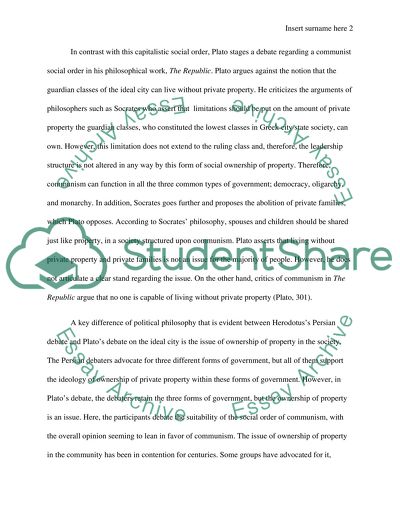Cite this document
(“Communism vs Capitalism Essay Example | Topics and Well Written Essays - 1500 words”, n.d.)
Retrieved from https://studentshare.org/sociology/1610638-communism-vs-capitalism
Retrieved from https://studentshare.org/sociology/1610638-communism-vs-capitalism
(Communism Vs Capitalism Essay Example | Topics and Well Written Essays - 1500 Words)
https://studentshare.org/sociology/1610638-communism-vs-capitalism.
https://studentshare.org/sociology/1610638-communism-vs-capitalism.
“Communism Vs Capitalism Essay Example | Topics and Well Written Essays - 1500 Words”, n.d. https://studentshare.org/sociology/1610638-communism-vs-capitalism.


